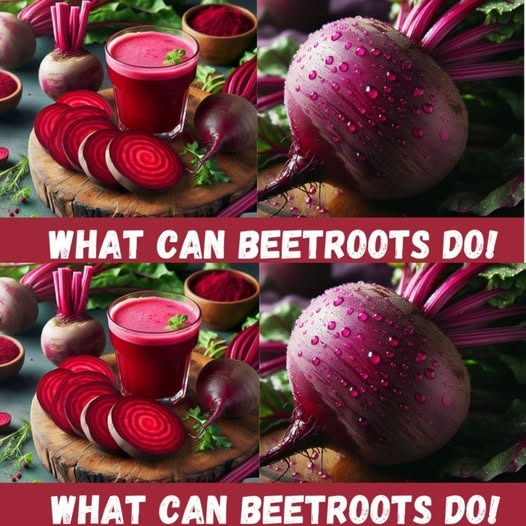Beetroot Juice: For a quick and refreshing way to consume beetroots, juice them with apples, carrots, and ginger. This combo boosts your immune system and promotes digestion.
Pickled Beetroot: Add some vinegar, salt, sugar, and spices to your beetroot for a tangy, crunchy addition to salads or sandwiches.
Beetroot Smoothie: Blend beetroot with fruits like bananas, strawberries, and a touch of honey for a healthy and delicious smoothie.
Beetroot Chips: Thinly slice beetroots, toss in olive oil, salt, and pepper, and bake at 375°F (190°C) for 20 minutes to make crispy beetroot chips.
FAQ:
What are the primary nutrients in beetroot? Beetroots are rich in essential nutrients like folate, fiber, manganese, potassium, and vitamin C. They also contain betalains, which are potent antioxidants.
Can beetroot help lower blood pressure? Yes, beetroot is known to help reduce blood pressure due to its high nitrate content. Nitrates help relax and dilate blood vessels, improving circulation.
Is beetroot good for detoxification? Absolutely! Beetroot supports liver function and aids in detoxification by increasing the activity of detoxifying enzymes. Its high fiber content also helps flush out toxins.
How does beetroot improve athletic performance? Beetroot’s high nitrate content improves oxygen delivery to muscles, enhancing endurance and stamina during physical activities. Drinking beetroot juice is popular among athletes for this reason.
Can beetroot help with digestion? Yes, beetroot contains a high amount of fiber, which promotes healthy digestion and regular bowel movements.
How often should I consume beetroot for health benefits? While there’s no specific recommended amount, incorporating beetroots into your diet 2-3 times a week can help you experience their health benefits. You can enjoy them in various forms like juices, salads, and smoothies.
Are there any side effects of eating beetroot? Beetroot is generally safe for most people. However, it can cause beeturia, a harmless condition where urine turns pink or red after consumption. If you have kidney stones, consult your doctor before consuming beetroot regularly due to its oxalate content.
ADVERTISEMENT

